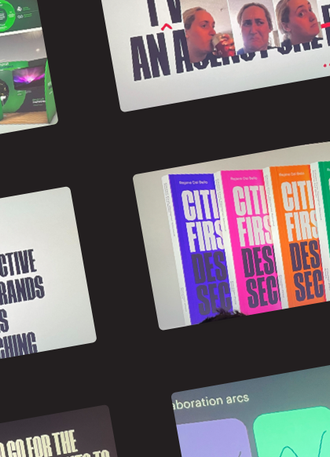In what feels like another lifetime, in the era “before Trump”, presidential candidate Mitt Romney generated both amusement and bemusement when he told the world that “corporations are people my friend”.
In a very specific legal sense, which we most definitely don’t need to get into, he was right. But in most other ways he was wrong. Hence the mirth. But from a marketing perspective, companies SHOULD be like people. They should have a personality, a sense of themselves, and in turn, they should be perceived in a certain way by others.
Most great companies instinctively know this. For those in our Dublin office, what adjective springs to mind when you hear the words “Paddy Power”? “Fun” is probably the answer. For those in our Berlin office playing the same game with Volkswagen, I would expect to hear “zuverlässig” - or “reliable” in English.
In other words, these companies have a personality. And in a world where one bet, or one car, is very much like another, a personality is a particularly valuable asset.
If your business has a personality, congratulations, you are over the first hurdle. But are you communicating that personality? If not, you may as well not have bothered. We communicate personalities in everything we do, of course. But your website is particularly central when it comes to that effort. It is the dominant interaction that most of your potential customers will have with your business.
In other words: a website with a personality matters.
Personalities don’t come off the shelf
I’m going to talk further about how to add personality to your site below, but before that let’s talk about one absolutely central step you have to take first, which is to custom build your site rather than grab a template off the shelf.
I don’t really care how you do it, but one way or another ensure that what you build is for you alone. A personality or a brand (which are just two sides of the same coin) cannot be taken off the shelf. You need to go through a process of examining what you want to say and how you want to do it. The feelings you want to evoke, in addition to the business goals you are looking to deliver on.
When you have done that, you will create something both impactful and effective. The goal is a site that helps your business to:
- Stand out in the crowd: The internet is crowded. Having a unique personality helps your website get noticed among a sea of sameness. It makes you memorable, it pulls visitors in and it keeps them coming back.
- Connect emotionally: As above, people like to connect with personalities, not with bland websites. A website with personality feels more real and relatable, building emotional connections that lead to customer loyalty.
- Show your human side: Whether you're a solo entrepreneur or a big company, showing your human side builds trust. A website with personality feels approachable and authentic.
So, how do you give your website a personality?
With all that out of the way, what are the practical steps that your business (and your agency) can take if you want to inject personality? Well, almost by definition this is a subjective topic: it’s not a case of being told what to do, but more being told how to do it.
Here’s a few pointers:
- Firstly, and most obviously: know your brand: Figure out what makes your organisation unique. Are you fun and quirky or serious and professional? If you don’t know what your personality is, your communication will be muddled and unclear.
- Tell stories: People love stories. Be relatable, and share your brand's story, your opinions on a blog, or how you go about your work in customer testimonials to make your content more engaging and relatable.
- Choose the right look: Your website's design should match your brand's personality. Whether it's bold and colourful or simple and sleek, make sure it reflects who you are. Yes, you need to design in a way that makes the site easy to use and supports your business objectives - but you can still add a distinctive personality within those restrictions.
- Consider doing one memorable thing. There is a furniture shop in Dublin that used to have a parrot in the window. Why? Because everybody remembers the shop with the parrot in the window. Adopt the same policy online. If there’s an interactive element or visual that will help you be remembered, use it!
- Be consistent: Just like in real life, consistency is key. We are talking about your personality here, and people with split personalities are less likely to be trusted after all. It sounds boring to talk about documenting your personality and ensuring you express it consistently. But it is necessary.
- Be bold: if it makes you stand out, and it matches your personality: do it. We argued long and hard about the message at the top of the Kooba website. We could have picked something that any agency might come up with. But in the end, we wanted to be different. We think it works.
So there you go. Giving your website a personality isn't just a nice-to-have; it's a must-have. It helps you stand out, connect with visitors and build a loyal following. But do remember, not every personality has to be fun-loving. Boring and reassuring is a personality type too.







